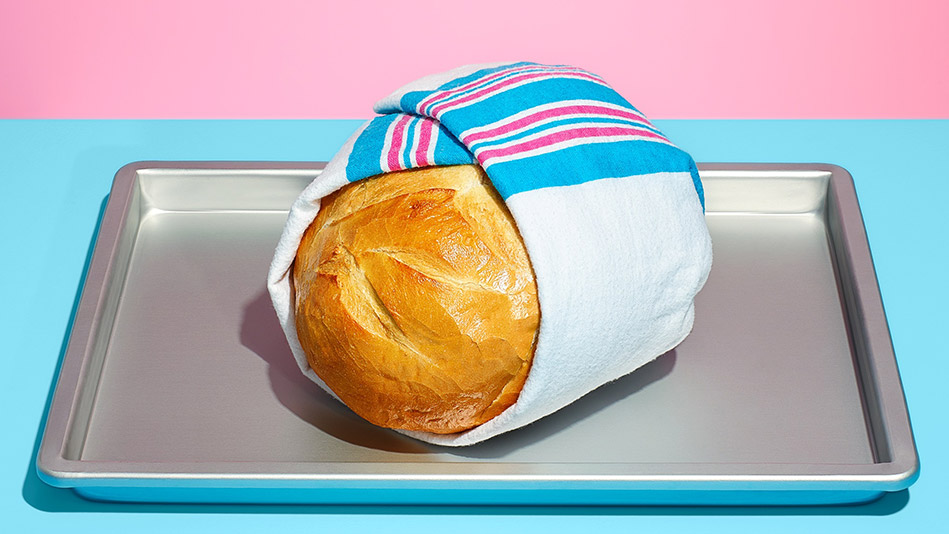3 Ways to Make Your Body Baby-Ready (Even If You Aren't)
It's never too early to start taking charge of your fertility

Photo: Dan Saelinger
When it comes to getting pregnant, some things are out of your control—but there are simple ways to increase your chances, even if parenthood isn't your immediate plan. Birth coach and wellness expert Latham Thomas, founder of the holistic maternity lifestyle company Mama Glow, says, "We're born with all the eggs we're going to have." As we age, the quantity and quality of our eggs only decline, so it's important not to lower your odds even further. "Don't wait until you're trying to get pregnant to start living a healthier life," she says. "Research shows that things you do now may affect your ability to conceive later." These three steps are smart moves for any woman:
1. Find a Good OB-GYN
Don't let years go by between doctor's visits—especially because STD testing is important. According to the CDC, 10 to 15 percent of women with untreated chlamydia will develop pelvic inflammatory disease, which can lead to infertility.
2. Feast on Fertility-Friendly Foods
A Harvard study that followed more than 18,000 women over eight years found that diet may play a key role in getting pregnant. Women who were least likely to have problems with their ovulation limited trans fat and amped up their consumption of vegetable proteins such as nuts and beans. Another good option is fish—halibut, tuna, and shrimp are rich in selenium, a nutrient that may help keep ovarian follicles healthy. And it's okay to indulge a little; small amounts of full-fat dairy (two scoops of ice cream per week) may also improve ovulation.
3. Get More Folic Acid
While doctors recommend this nutrient for women trying to get pregnant, experts now believe increasing folate intake is a good idea for all women during their reproductive years. Not only does folate play a key role in the fetal brain development that occurs in the first weeks of pregnancy (often before women know they're pregnant), it also helps maintain heart health. The Harvard researchers found that women who took a daily multivitamin containing folic acid were 41 percent less likely to experience ovulatory infertility than those who didn't. —Jihan Thompson
Your New Birth Control BFF?
The case for giving the IUD a chance.
If you've been faithful to the pill for years, we think it's time you gave another form of contraception a second look. Yes, we're talking about the IUD. We get that having something take up residence in your uterus (and stay there for up to three to ten years) sounds a little sci-fi, but the T-shaped device's failure rate is fantastically low—somewhere between a negligible 0.2 and 0.8 percent, compared with the pill's 9 percent. "The IUD is the most popular form of birth control used by female ob-gyns," says Mary Rosser, MD, PhD, of the American Congress of Obstetricians and Gynecologists. "The older IUD was poorly designed, but today's versions are much safer." The odds of your IUD falling out (it can happen) or perforating your uterus (usually during insertion) are small: 3 to 10 percent of women report expulsion, and only 1 in 1,000 experiences injury. Women with IUDs that release a hormone to inhibit ovulation often have lighter menstruation—or even no period at all. —Arianna Davis
1. Find a Good OB-GYN
Don't let years go by between doctor's visits—especially because STD testing is important. According to the CDC, 10 to 15 percent of women with untreated chlamydia will develop pelvic inflammatory disease, which can lead to infertility.
2. Feast on Fertility-Friendly Foods
A Harvard study that followed more than 18,000 women over eight years found that diet may play a key role in getting pregnant. Women who were least likely to have problems with their ovulation limited trans fat and amped up their consumption of vegetable proteins such as nuts and beans. Another good option is fish—halibut, tuna, and shrimp are rich in selenium, a nutrient that may help keep ovarian follicles healthy. And it's okay to indulge a little; small amounts of full-fat dairy (two scoops of ice cream per week) may also improve ovulation.
3. Get More Folic Acid
While doctors recommend this nutrient for women trying to get pregnant, experts now believe increasing folate intake is a good idea for all women during their reproductive years. Not only does folate play a key role in the fetal brain development that occurs in the first weeks of pregnancy (often before women know they're pregnant), it also helps maintain heart health. The Harvard researchers found that women who took a daily multivitamin containing folic acid were 41 percent less likely to experience ovulatory infertility than those who didn't. —Jihan Thompson
Your New Birth Control BFF?
The case for giving the IUD a chance.
If you've been faithful to the pill for years, we think it's time you gave another form of contraception a second look. Yes, we're talking about the IUD. We get that having something take up residence in your uterus (and stay there for up to three to ten years) sounds a little sci-fi, but the T-shaped device's failure rate is fantastically low—somewhere between a negligible 0.2 and 0.8 percent, compared with the pill's 9 percent. "The IUD is the most popular form of birth control used by female ob-gyns," says Mary Rosser, MD, PhD, of the American Congress of Obstetricians and Gynecologists. "The older IUD was poorly designed, but today's versions are much safer." The odds of your IUD falling out (it can happen) or perforating your uterus (usually during insertion) are small: 3 to 10 percent of women report expulsion, and only 1 in 1,000 experiences injury. Women with IUDs that release a hormone to inhibit ovulation often have lighter menstruation—or even no period at all. —Arianna Davis



